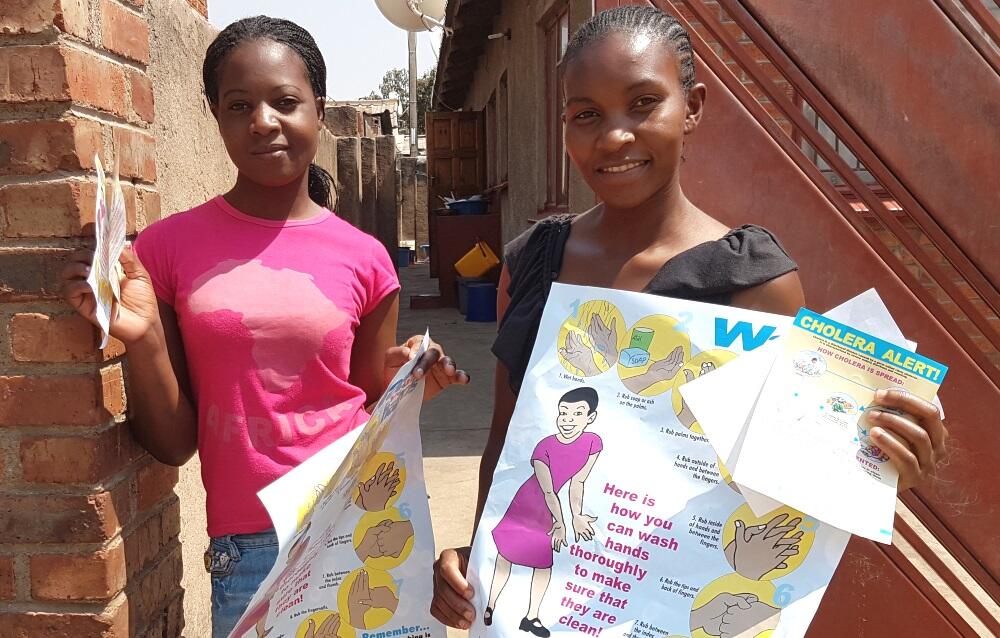Harare, Zimbabwe, 4 October, 2018—As Zimbabwe battles a cholera outbreak, UNFPA, the United Populations Fund, is providing dignity kits to women and girls in the affected areas and supporting cholera prevention initiatives to reduce its spread.
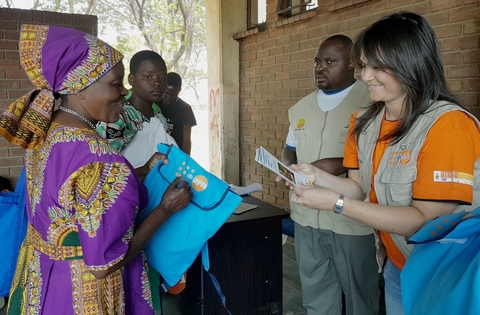
Harare’s high density suburbs Budiriro and Glen View, at the epicentre
of this outbreak, were also the site of the 2008 outbreak that killed
more than 4000 people. © UNFPA Zimbabwe/Jesilyn Dendere
The current outbreak, declared an emergency by the government on September 11, has claimed the lives of 50 people. As at 3 October, of a total of 8,535 reported cases, 163 were confirmed and 8,372 suspected.
At the epicentre of the outbreak are two of Harare’s high density suburbs, Budiriro and Glen View, which were also the site of the 2008 cholera outbreak that killed more than 4000 people.
About 250,000 women of reproductive age in Zimbabwe are at risk of being affected by cholera, at least 150,000 of whom are in Harare. In addition, about 30,000 pregnant women countrywide are at risk, 18,000 of whom are in the capital.
We are very concerned about the cholera outbreak in Zimbabwe and how it may affect women and young people, particularly girls.
“We are very concerned about the cholera outbreak in Zimbabwe and how it may affect women and young people, particularly girls,” said Dr. Esther Muia, UNFPA Representative for Zimbabwe.
UNFPA provides dignity kits and aids surveillance, prevention efforts
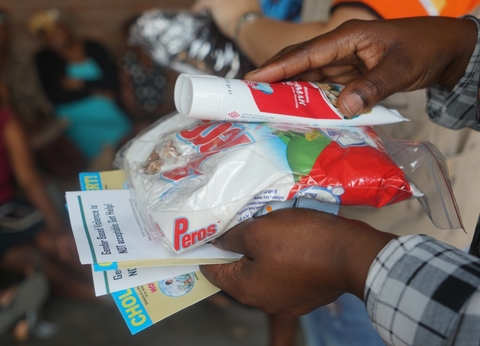
bar of soap, toothpaste, a toothbrush, a comb, a flash light, washing
powder, and a backpack, as a strategy to mitigate both cholera and
gender-based violence. © UNFPA Zimbabwe/Jesilyn Dendere
To support the communities at risk, UNFPA has distributed 485 dignity kits to women and girls. Each kit includes reusable sanitary pads, underwear, a soap bar, toothpaste, a toothbrush, a comb, a flash light, washing powder, and a backpack, as part of a mitigation strategy for both cholera and gender-based violence (GBV).
UNFPA has donated vehicles to Harare’s health department, which will be used for cholera surveillance in the suburbs of Harare. In addition, the Fund has mobilized GBV sub-cluster members working at community level to help put in place cholera prevention mechanisms in hotspots.
Members of the GBV sub-cluster are working at community level to conduct safety audits in the hotspots, to assess the risk of GBV exposure as a consequence of modified community patterns, as well as availability of and access to safe water sources.
Cholera prevention campaigns for behaviour change
UNFPA is also supporting the Zimbabwe Community Health Intervention Research Project Behaviour Change (ZiCHIRe-BC) with conducting cholera prevention campaigns in areas where people are considered to be at risk.
The education we are getting from these campaigns can help us save lives.
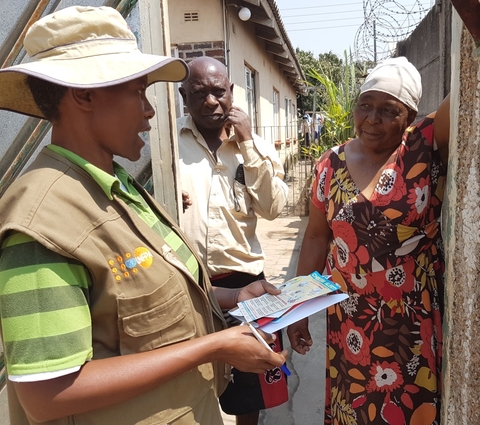
in the affected areas, an elderly couple in Glenview 1 learns about
cholera prevention from a ZiCHIRe behaviour change facilitator,
with support from UNFPA. © UNFPA Zimbabwe/Jesilyn Dendere
"The information is very useful during this critical time. We have heard of people losing their lives in Glenview 3. The education we are getting from these campaigns can help us save lives," says Mai Muzizwa, a Glenview 1 recipient of prevention messaging.
However, additional efforts are needed as the outbreak is occurring in a densely populated urban environment, with limited access to clean water and sanitation services, which remains a major risk factor for spreading the disease.
“Some households do not even have access to running water, forcing [the occupants] to walk long distances to look for water from community boreholes,” said Sandra Kadzimwe, a ZiCHIRe Behaviour Change Facilitator.
The concurrent outbreak of typhoid fever is placing additional stress on the human, logistical and financial capacities to respond.
People are now afraid of the possible spread of the disease and are therefore looking for more information on how they can prevent it.
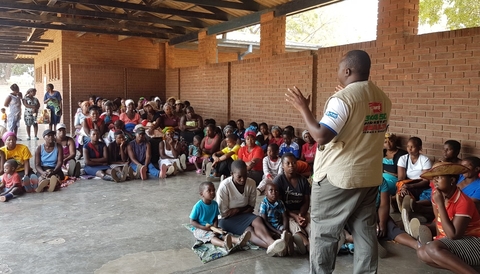
prevention tips with women and girls at Glenview Community Hall,
Harare, where UNFPA distributed more than 400 dignity kits.
The capacity of the government and partners to respond has been
limited by a concurrent outbreak of typhoid fever.
© UNFPA Zimbabwe/Jesilyn Dendere
“People are now afraid of the possible spread of the disease and are therefore looking for more information on how they can prevent it. Even though most of the community members know of the importance of washing hands, they are seeking additional information on how to take care of their households in relation to water treatment, cleanliness and cleaning of toilets,” said Monica Marumbwa, a ZICHIRE Behaviour Change Facilitator.
UNFPA will continue to support these efforts in conjunction with other partners.
“We will continue to provide any support that may be required throughout this crisis in the best way possible. We call on the support of our development partners to support us to do this,” Dr. Muia said.
By Jesilyn Dendere with additional input from Aimee Manimani Nsimire

